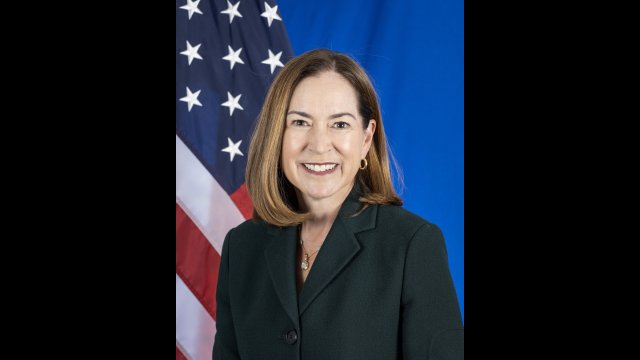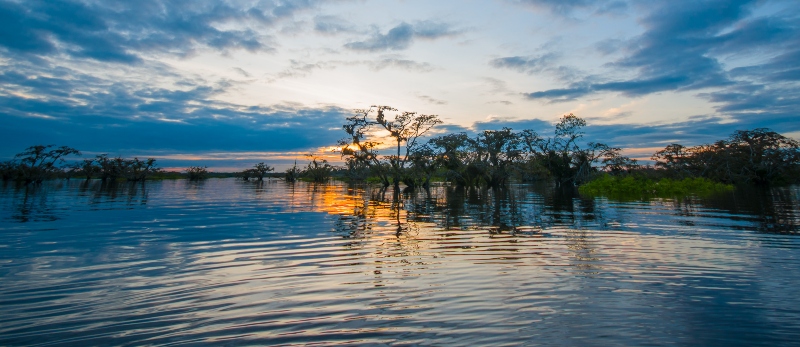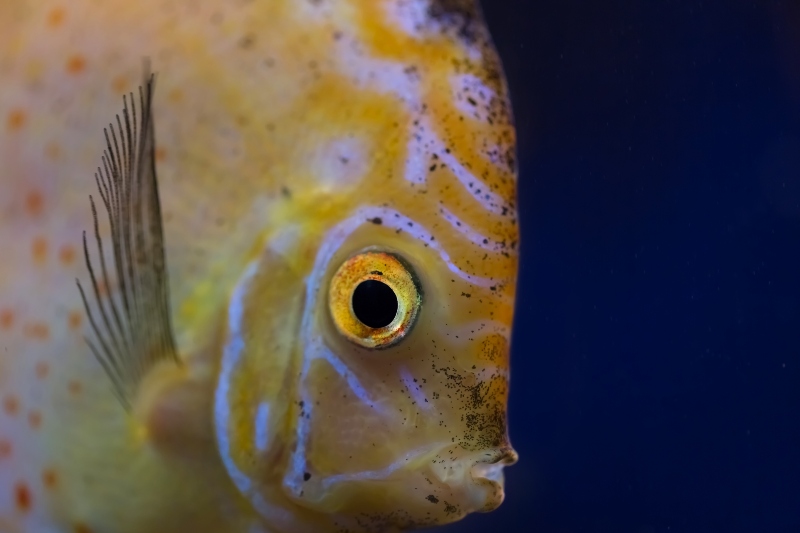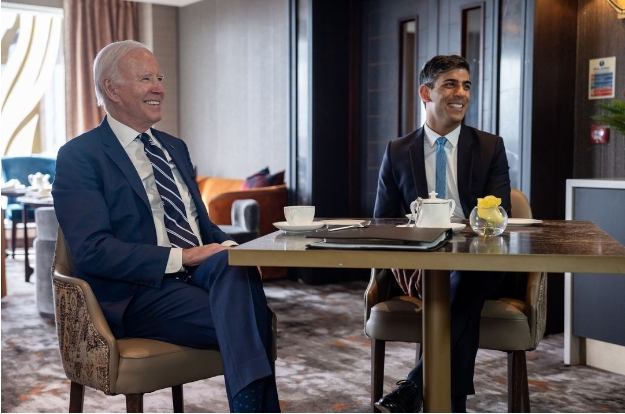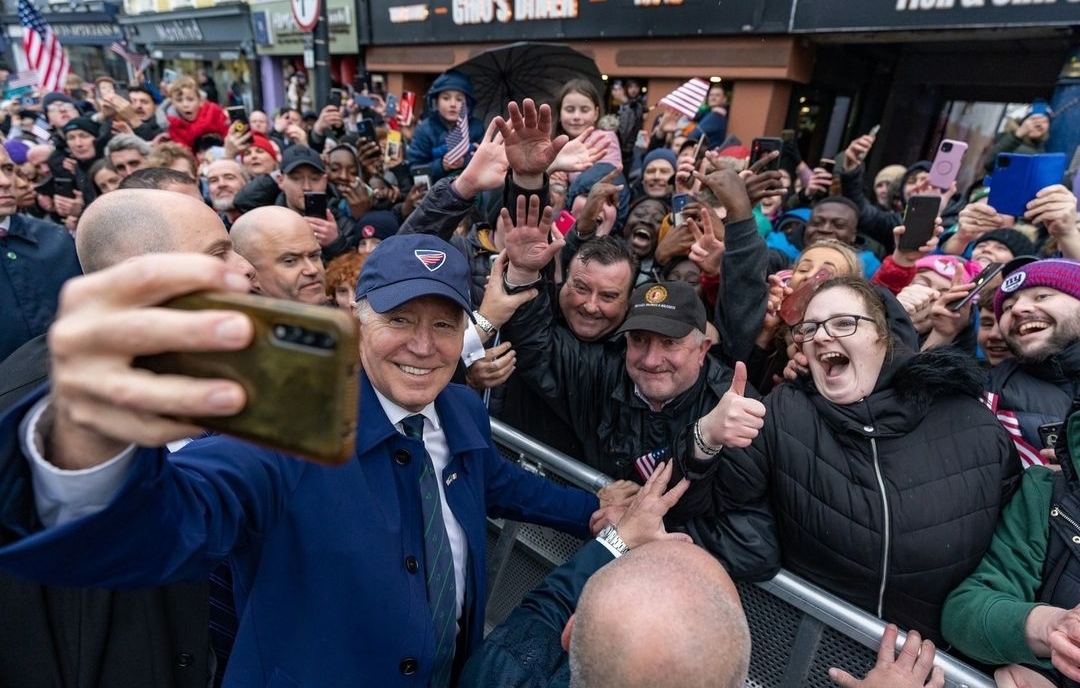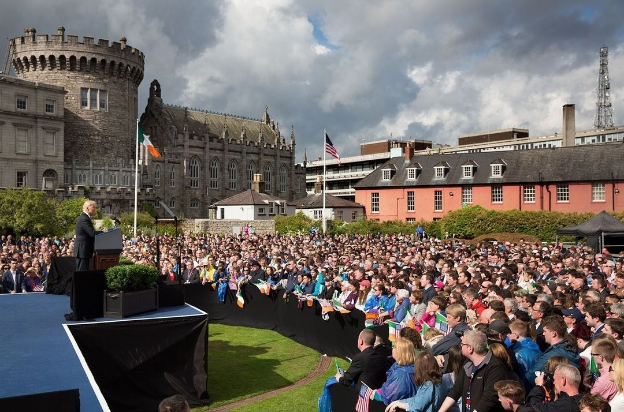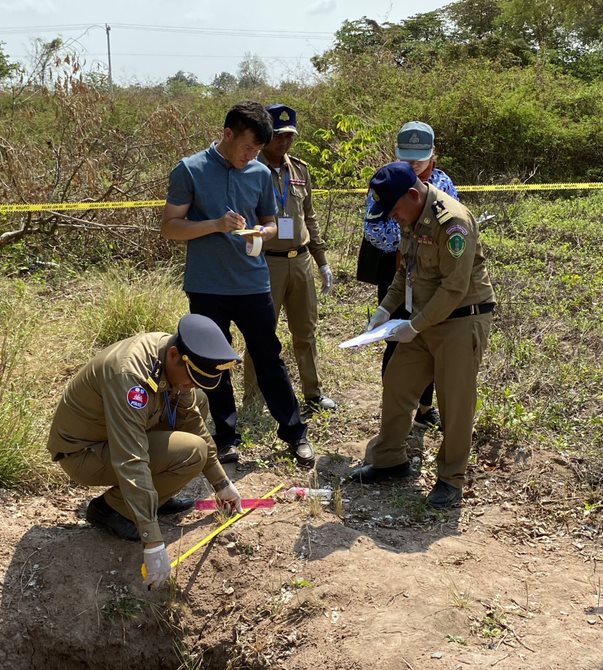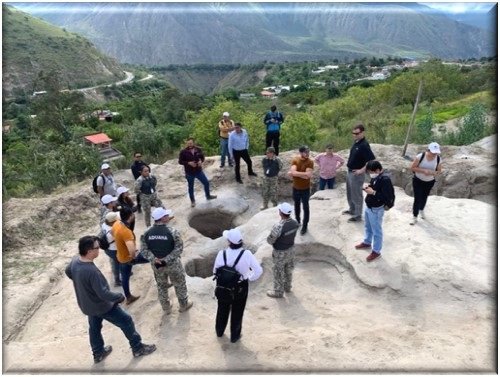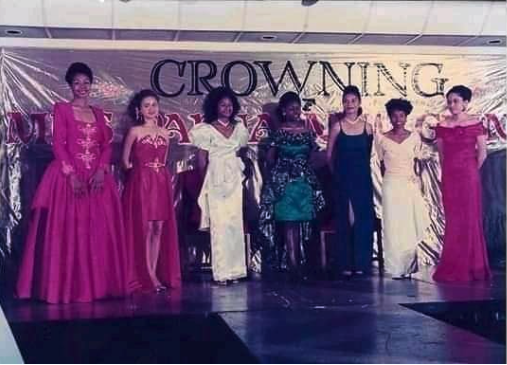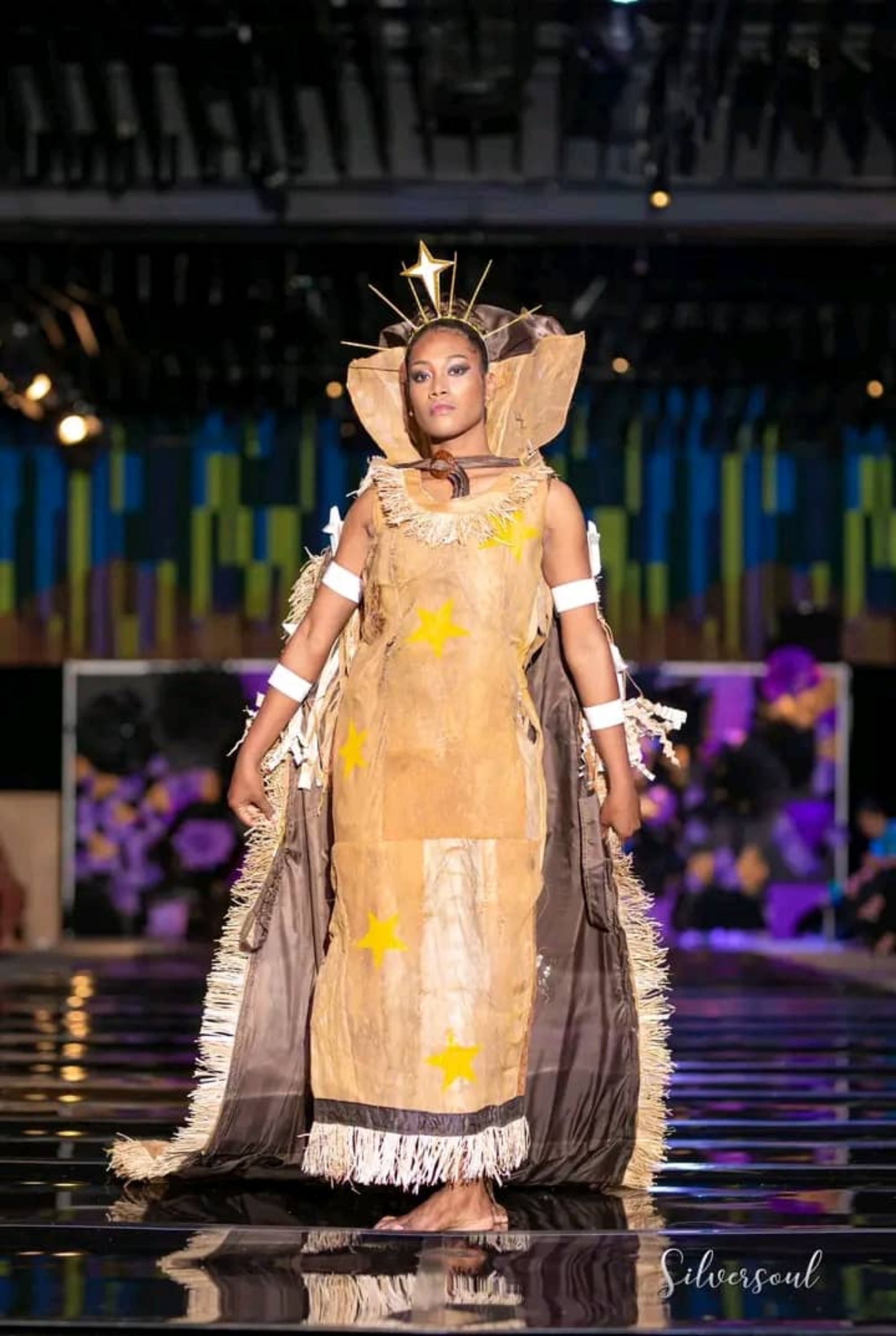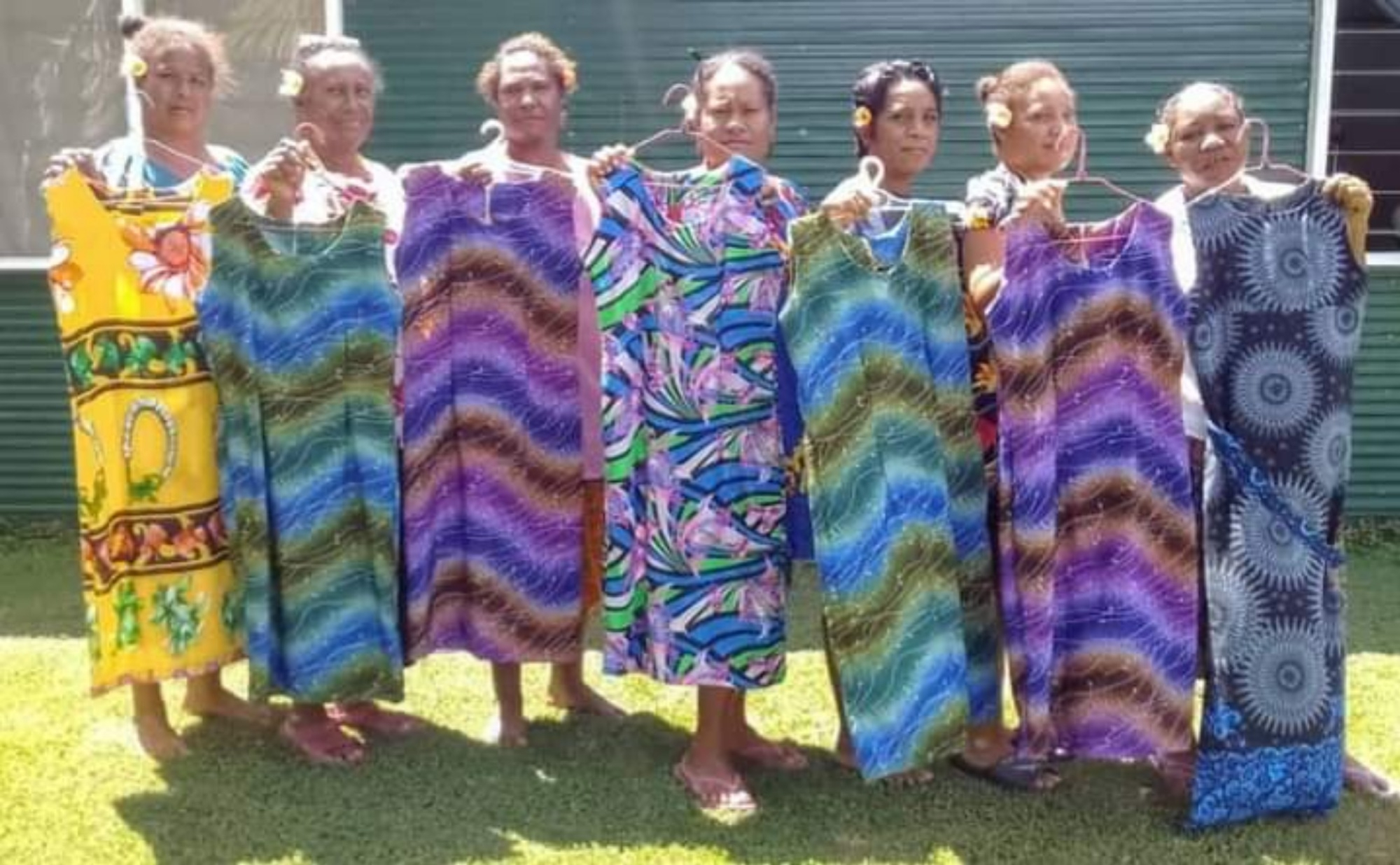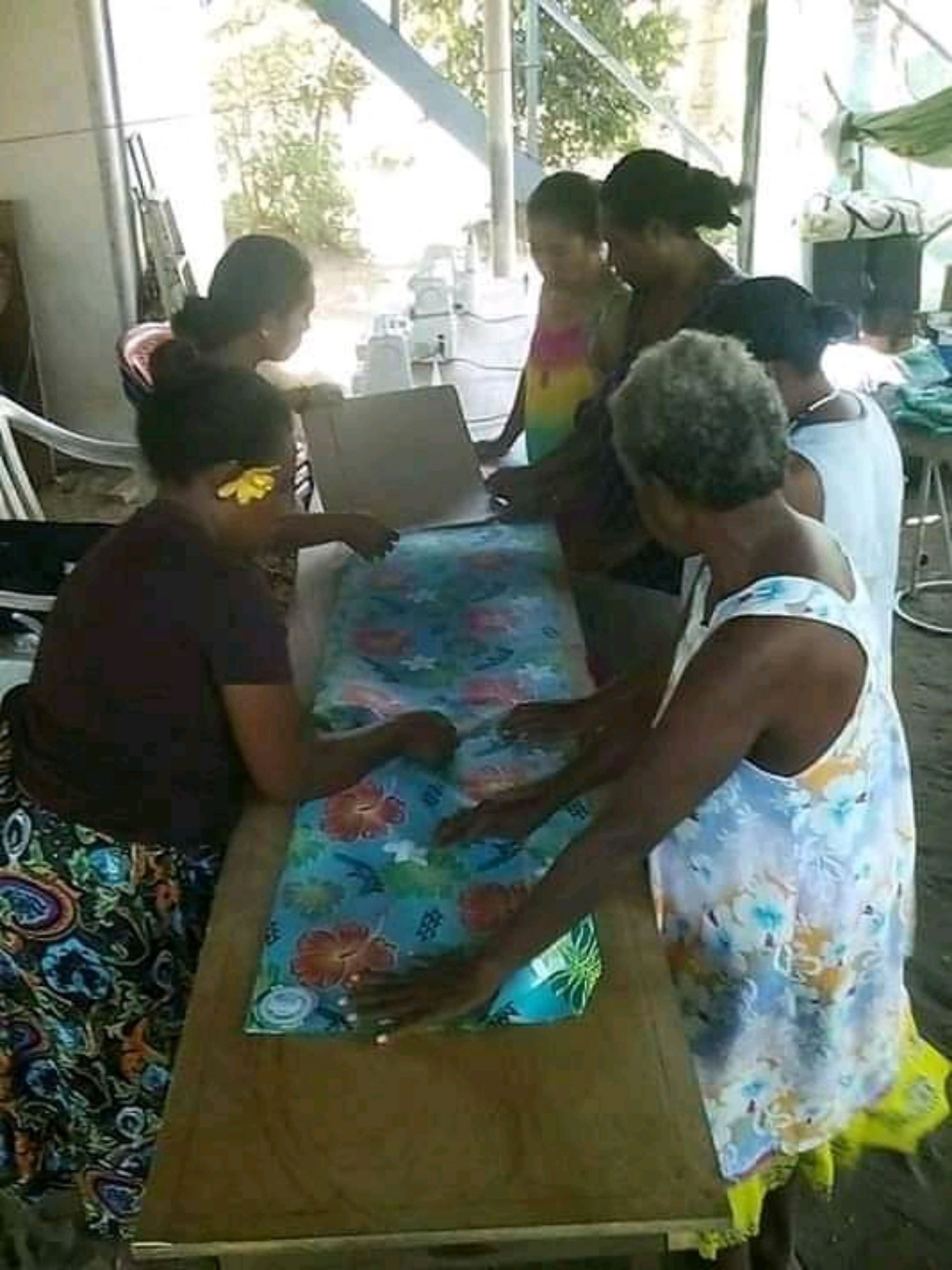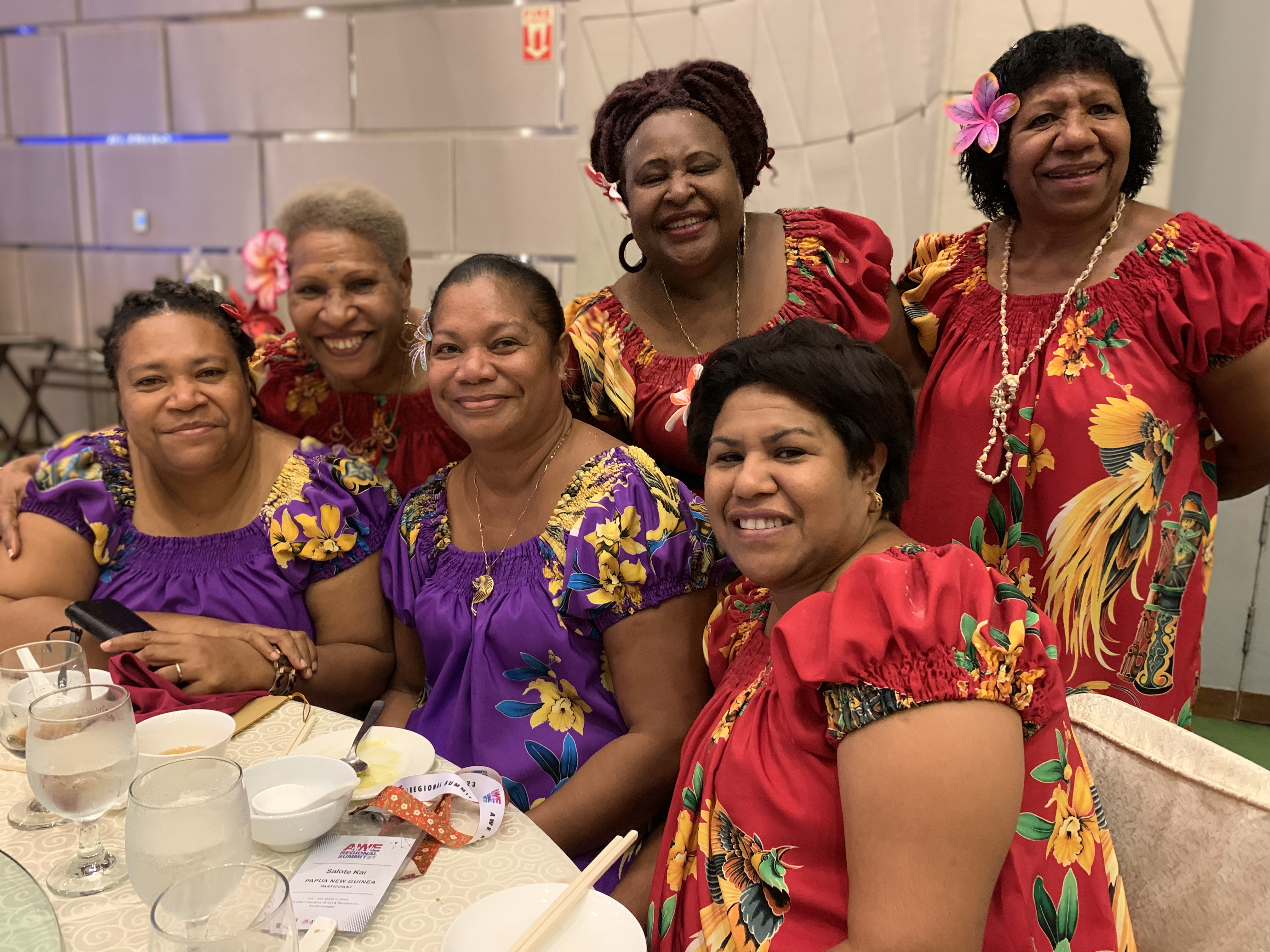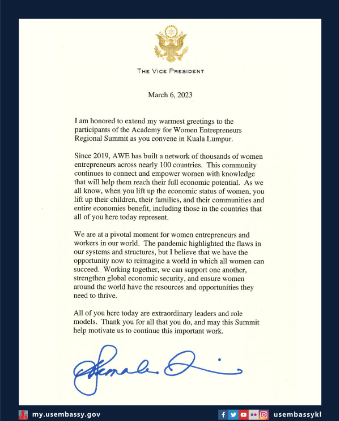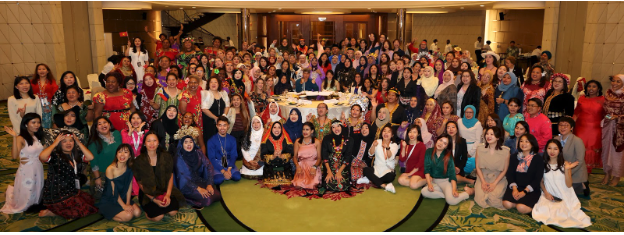Article by Naomi Hampton, intern with the U.S. Department of State, currently studying History and Politics of the Americas at University College London.
|
| Bonnie Naua stands with one of her designs at the AWE Summit in Malaysia. Photo Credit: Amelia Shaw |
[Papua New Guinea, March 2023] Bonnie Naua, an Academy for Women Entrepreneurs (AWE) exchange alumna, is making a unique contribution to local style with her business Saroni Tailoring Services. Inspired by traditional garments from her home country of Papua New Guinea and her passion for fashion, Naua has found a way to celebrate the island nation’s vibrant culture through custom clothes, and is sharing her business with wider audiences across Asia.
The third largest island nation in the world, Papua New Guinea - also known as “PNG” - is home to over 1,000 different culture groups who speak 839 known languages. Naua herself comes from the Koke Gubarei Idibana 1 Clan, which is an ethnic group known for its Lagatoi canoe building and clay pottery. Naua uses her cultural heritage as inspiration for her clothing designs, and with skills she learned through AWE she is spreading her business knowledge to other women.
|
| Bonnie Naua is third from right at Miss PNG 1992. Photo Credit: Silver Soul Studios |
Naua found her passion at 19 years old, while participating in local beauty pageants. She said the fashionable garments she got to wear after being named the runner-up in Miss PNG 1992 made her feel a connection with clothes. She began designing and making clothes with a sewing machine she received as a gift from one of her neighbors, and in 2014, she took her passion to the next level by participating in a year-long training course at PNG Garment and Textile Training Center in the capital, Port Moresby.
When she graduated, she opened her business Saroni Tailoring Services. Naua incorporates traditional patterns into the prints, saying it is a way to keep her culture alive.
|
| One of Naua’s designs at her fashion show at the Hilton Hotel in the capital, Port Moresby. Photo credit: Silver Soul Studios |
She first got help from the U.S. government to expand her business in 2019 when she took part in the Hawaiian Changing Woman Faces Leadership Program hosted by the U.S. educational institution at the East-West Center, which allowed her to connect with women from 30 countries in Asia and the Pacific to engage with U.S. experts and share business ideas.
She was thrilled when she was selected to be part of AWE later that year. For Naua, AWE helped her build more connections with women in her own country and reignite her passion for running a business - especially when the COVID-19 economic crisis hit a year later.
|
| Some of the women showing off their creations. Photo Credit: Silver Soul Studios |
The pandemic forced Naua to close her shop, but her AWE training helped her persevere and even expand. Naua currently operates Saroni Tailoring out of her home, where she’s now accumulated several electric sewing machines, industrial straight sewers, and an overlocker. Although she misses the small shop she once had, she said running the business at home allows her to save money and invest the funds back into her community through training programs.
|
| Women marking out the pattern onto fabric during one of the training programs. Photo credit: Silver Soul Studios |
“Although it’s been hard, I’m actually a believer of the American saying, ‘making something out of nothing,’ and that is exactly what I have done here,” Naua said.
In addition to selling clothes, Saroni Tailoring Services holds week-long training programs for up to 10 women at a time from rural areas. Each program teaches women how to make an item of clothing from scratch, providing women with skills to start their own businesses and become financially independent - skills Naua herself learned through the AWE program.
|
| Bonnie and the other AWE alumnae from PNG the AWE summit in Kuala Lumpur in 2023. Photo Credit: Amelia Shaw |
“These U.S. government programs really made me dust the cobwebs out of my eyes and focus on reinvigorating my business,” Naua said.
As a small, rural-based company with a varying number of staff depending on the season, Naua said she hopes to expand her business into the East Asian market and share her traditional designs with the world.
|
| Letter to AWE participants attending the AWE Summit, written by U.S. Vice President Kamala Harris. Photo: U.S. Embassy Kuala Lumpur |
She got the opportunity to do just that while attending the AWE Women’s Summit in Malaysia in March 2023, where she shared her designs with nearly 200 AWE alumnaei and business experts from 10 countries around Asia and the Pacific.
Through interactive workshops led by business leaders from Amazon Web Services and Silicon Valley, AWE Summit participants got the chance to learn from cutting-edge U.S. experts in business technology, and network with other women entrepreneurs from across the region. And they were elated when the U.S. Ambassador to Malaysia read a letter written by Vice President Kamala Harris, praising AWE’s work to promote women’s economic empowerment around the world.
For Naua and the other AWE alumnae present, it was a tremendous opportunity to network and share business ideas. “I’m turning 50 years old this year,” Naua said. “It’s time to showcase my designs.”
|
| Naua was one of nearly 200 AWE alumnae to attend the 2023 AWE Summit in Malaysia. Photo Credit: U.S. Embassy Kuala Lumpur |
The Academy for Women Entrepreneurs, a U.S. Department of State program, gives thousands of women like Naua the knowledge, networks and access they need to launch and expand successful businesses. Since 2019, AWE has used DreamBuilder, which was developed by Arizona State University’s Thunderbird School of Global Management and Freeport-McMoRon Foundation, to empower more than 25,000 women entrepreneurs in 100 countries to follow their dream of owning a business. Beyond Papua New Guinea, AWE operates in sevenother island nations in the Pacific,the Pacific, helping roughly 1,200 women entrepreneurs on Fiji, Papua New Guinea, the Solomon Islands, New Zealand, the Cook Islands, French Polynesia, Niue and Samoa to grow their businesses and reach their full economic potential.
For more information about AWE, visit: https://eca.state.gov/awe.

